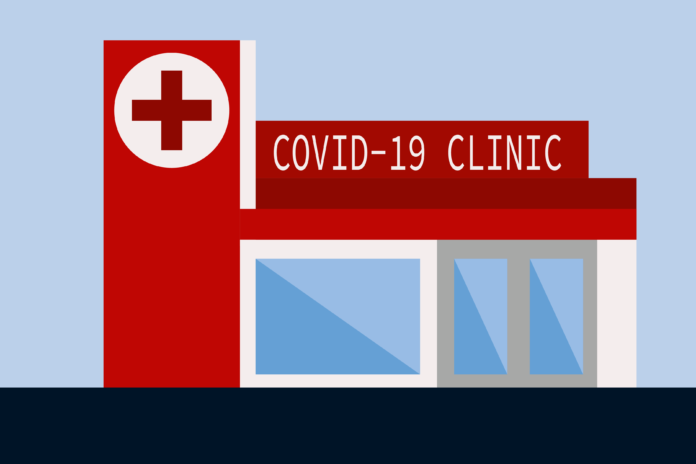The clinic seeks to provide care to patients dealing with lasting post-COVID-19 symptoms
UC Davis Health has launched a Post-COVID-19 Clinic to provide care and treatment for patients who survived COVID-19 but are still facing symptoms. The reasons for the post-COVID-19 symptoms are currently unclear, but they could last for months.
“The clinic is very new and our first patients are just now starting the referral and assessment processes,” said Karen Finney, the senior public information officer for UC Davis Health Office of Public Affairs, via email. “However, we consider it a great success. It is one of the first clinics in the nation to provide a place where those who survived COVID-19 yet still have ongoing symptoms can go for consultations.”
The clinic was formed out of a concern for patients who had continued to experience problems like respiratory issues, heart and vascular problems, exercise endurance and headaches. Mark Avdalovic, an associate professor of pulmonary and critical care medicine and director of the Post-COVID-19 Clinic, noticed that there were patients who had otherwise recovered from COVID-19 but still faced ongoing symptoms.
“We established the clinic to better understand those symptoms and find out if they could be related to the virus or perhaps even to the initial treatment for the virus,” Avdalovic said, via email. “UC Davis’ extensive network of specialists provides opportunities for us to expand evaluation and care teams as needed, depending on a patient’s specific symptom profile.”
Undergoing COVID-19 symptoms after recovering from the virus can be a difficult experience for patients. Avdalovic describes how these symptoms can be confusing as well as mentally and physically taxing on COVID-19 patients.
“It’s frustrating and frightening for them,” Avdalovic said in a press release. “With this clinic, we can provide a much-needed service to our patients and our community. There are many who are still suffering a wide array of symptoms despite being many weeks out from their initial infection, and they don’t know why. They deserve to have these symptoms evaluated in a systematic fashion.”
The symptoms themselves have been very diverse, ranging from a dry cough and shortness of breath to muscle and joint aches.
“Those symptoms can be mild or very interruptive of daily life,” Avdalovic said, via email. “The commonality is that these patients do not feel as healthy as they did prior to COVID-19 infection.”
These patients who have recovered from the novel coronavirus test negative but still endure prolonged symptoms. A team of British scientists estimate that about 10% of people who had COVID-19 are still experiencing symptoms after testing negative. The COVID-19 “long-hauler” patients did not necessarily face serious illness while testing positive. In fact, Avdalovic noted that a recent study shows that some of the patients without symptoms during the acute infection were later experiencing inflammation in the lungs and heart.
Because COVID-19 is a respiratory illness, the clinic is based in pulmonary medicine. The novel coronavirus can have long-term impacts on airways, lung capacity and ability to conduct other respiratory functions. The “long-hauler” patients with ongoing symptoms are also likely to be experiencing respiratory issues.
The clinic will be using telemedicine to provide consultations for COVID-19 patients as well as patients with other lung conditions such as asthma, chronic obstructive pulmonary disease, cystic fibrosis or pulmonary fibrosis. The clinic is for patients who have tested positive, had symptoms at least 30 days ago and are concerned about health issues that didn’t exist before the virus or aren’t yet fully recovered and back to normal health.
“Students who tested positive for COVID-19 at least 30 days ago and still have symptoms are welcome to be seen in the clinic,” Finney said. “With their permission, outcomes of their clinical assessments may be included in future studies. They should call 1-800-482-3284 to initiate a referral.”
Written by: Hannah Blome and Simran Kalkat — campus@theaggie.org




